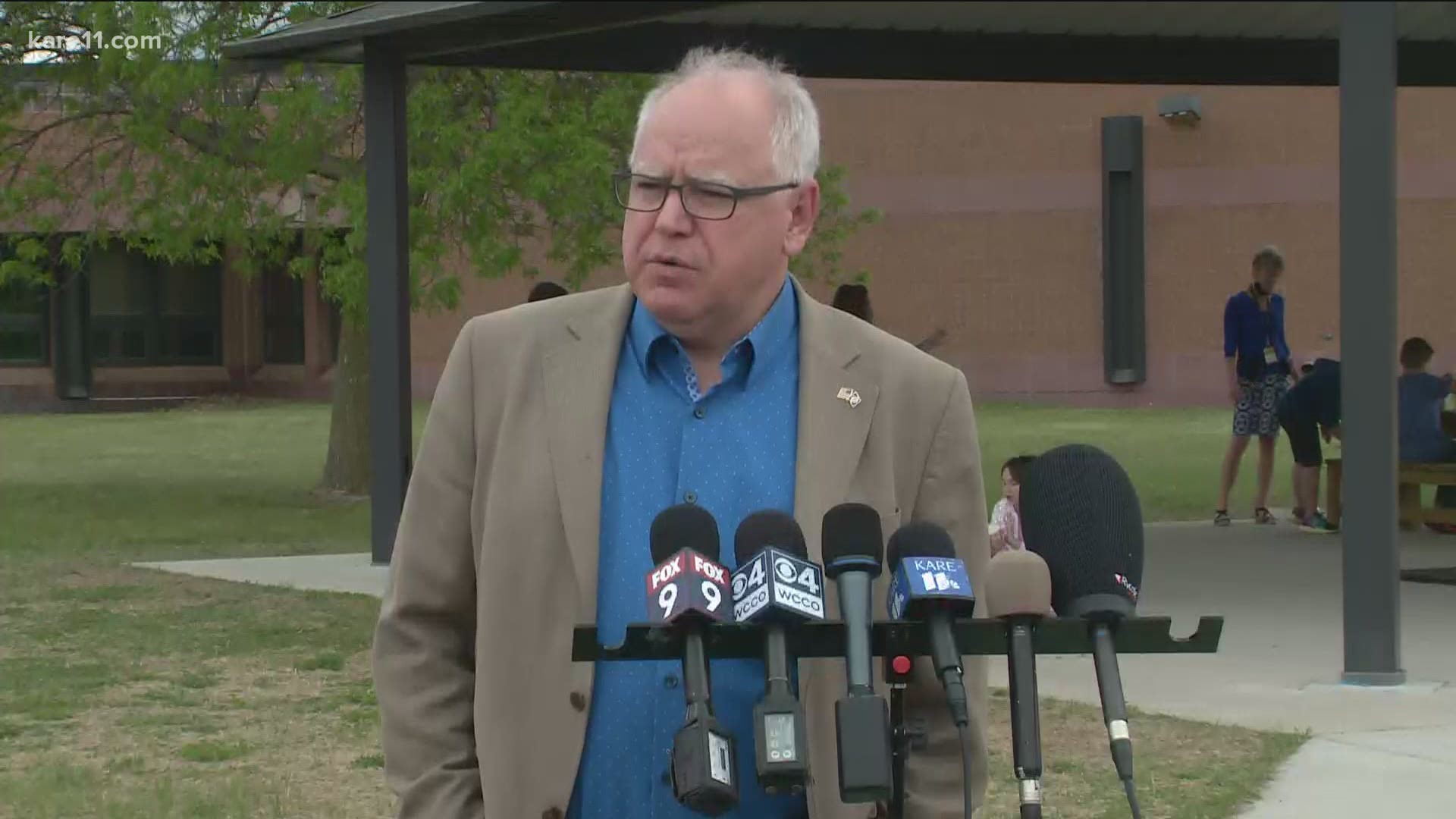WHITE BEAR LAKE, Minn. — With only weeks left in the regular school year, districts around the state can now count on more support for summer school programs.
At a Tuesday afternoon event at Otter Lake Elementary School in White Bear Lake, Gov. Tim Walz touted the funding as an example of a bipartisan commitment to supporting both teachers and students after a difficult year.
“Our schools… have become incredibly resilient. They’ve been incredibly adaptable. Our students certainly have been,” the governor said after interacting with several students.
The $75 million in additional summer school funding comes from a federal $500 million pot for COVID relief. The decision to allocate the money to summer school learning was just one part of the general budget agreement announced by state lawmakers on Monday.
Among the priorities that school leaders say will be addressed with the new funding: neighborhood “innovative programming,” field trips, preschool programming, mental health services, tutoring, adult education and college preparation programs.
“It’s going to be widespread, from 4- and 5-year-olds all the way to adults, and meets everyone’s needs in between. And really continues to be focused on our students,” said Dr. Heather Mueller, Minnesota’s Education Commissioner.
Each district will receive their share based on a formula, school leaders said. Grants are also available.
Bottom line, leaders hope the funding will help schools and students get back on track after a difficult year.
More details on the “Plan to Fund Summer Learning” – provided by the governor’s office – are as follows:
Academic and Mental Health Support ($34.614 million)
Public schools and districts will receive a general allocation in order to create partnerships with organizations and provide services in the following areas:
- Expand mental health and well-being support to youth and adolescents attending school district and charter school summer learning programs.
- Partner with community businesses and organizations to develop a summer mentor and/or tutoring model that covers enrichment programming and other costs such as transportation and meals to increase student participation.
- Bring school-based summer programs into the community, providing opportunities for enrichment, social and emotional skill building, mental health support, and tutoring services.
- Provide students with summer field trips for hands-on learning opportunities. Hands-on learning opportunities include activities such as trips to nature centers, state parks, zoos, museums, or theaters.
Preschool for 4- and 5-Year-Olds ($20 million)
This allocation provides preschool or prekindergarten to 4- and 5-year-olds. These funds can be used in a Parent Aware star-rated, public or private, preschool, or prekindergarten in-person learning program. These high-quality early learning programs help children develop their social-emotional skills before they begin kindergarten.
School-Linked Mental Health Grants ($6.011 million)
This investment in School-linked Mental Health Grants, administered by the Department of Human Services, will address an increased need for community mental health services as a result of the COVID-19 pandemic.
Expanded Access to Tutoring ($3.25 million)
The Governor will expand access to tutoring services including academic enrichment, mental health support, and other wrap-around services for K-12 children by providing grants to experienced entities, including community organizations.
Increased Adult Basic Education Program Funding ($10 million)
This investment will strengthen Adult Basic Education (ABE) programming statewide to ensure access to, enhance the quality of, and to increase the ABE programming available. This proposal will fund expanded ABE programming for the summer of 2021 and if funding remains available, it would be used throughout fiscal year 2022 in order to build and help sustain enhanced programming year-round.
Learning Acceleration and College Readiness Initiatives ($1.125 million)
The Governor will allocate funding to the Office of Higher Education (OHE) for two programs for the summer months. Funding for OHE’s Summer Academic Enrichment Program will increase by $625,000 and the Intervention for College Attendance Program will increase by $500,000. These programs will work to address educational challenges due to the pandemic, which is disproportionally impacting the most underserved students.

